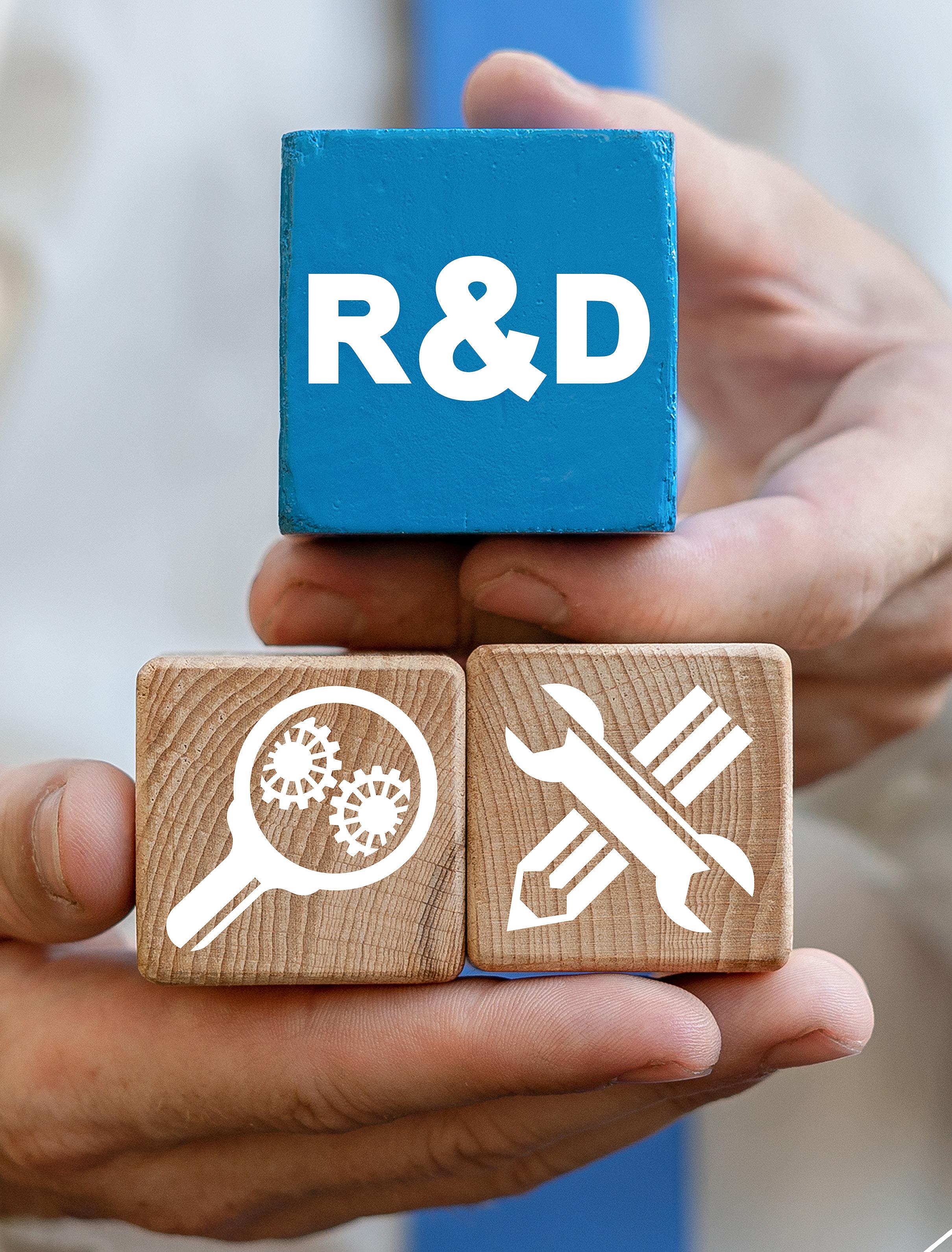
3 minute read
Innovation, R&D and Intellectual Property
RESEARCH & DEVELOPMENT ▶▶▶
RESEARCH, DEVELOPMENT AND INNOVATION STEP INTO THE LIMELIGHT IN HUNGARY
Research, development and innovation are essential activities in today’s business landscape for ensuring economic prosperity in the long term. While Europe-wide, there are often complaints about a bridge between academia and industry in terms of R&D, Hungary’s innovation landscape is gradually bursting into life. It seems wellplaced to deliver potential growth opportunities for the country.

Boldizsár Cseh, manager for R&D tax benefits and cash subsidies at PwC Hungary.
By Christian Keszthelyi
With the most severe immediate impacts of the pandemic fading, the rise in medical project research and development sparked by the Coronavirus is slowing. With sustainability and green technology seeing increasing attention, e-mobility projects, especially related to electric vehicles and the charging infrastructure, are rising.
“In addition, we are seeing that in the past few years, the number of information technology projects and IT developments are a very significant part of overall R&D activity,” Boldizsár Cseh, manager for R&D tax benefits and cash subsidies at PwC Hungary, told the Budapest Business Journal. Additionally, technology research and development projects are accelerating.
These trends are paralleled by an increased interest from businesses toward research and development-related tax benefits, which is likely a response to the challenging economic climate, dominated by post-pandemic recovery, supply chain issues, the energy crisis and inflationary pressures. As companies are steering toward cost-cutting measures, R&D tax benefits are a great and safe way for such efficiency streamlining. Research and development deliver immense benefits to the business landscape, and its positive effects have increased in the last few years.
“In the case of every project that can qualify as R&D (from any area, be it IT development, pharma, manufacturing, FinTech, and so on), usually 6-11% of R&D costs can be the net amount of incentives from CIT [corporate income tax], LBT [local business tax] and social contribution tax. It should also be mentioned that this tax incentive can be achieved retroactively,” Cseh tells the BBJ.
CASE STUDIES ▶▶▶

PROTECTIVE COATING FIRM RESYSTEN BEGINS GLOBAL EXPANSION
A Hungarian company whose protective hygiene coating came to the fore as the COVID pandemic spread across the world has announced that it is launching its global expansion on the back of a sizeable private equity investment.
By BBJ Staff
Resysten announced in mid-November 2022 that it had agreed on a HUF 750 million capital injection with the Columbus Private Equity Fund, from which it will develop its laboratory and research base in addition to overseas exposure. The co-financier is the stateowned EXIM Hungary.
Resysten has effectively become a medium-sized company from a family business: the invisible and long-lasting hygiene coating it developed keeps germs away from surfaces frequently touched by many. Today, the system protects the health of millions of people in hospitals and public transport, but it is also used in sports facilities, educational institutions, multinational companies and shopping centers.
The self-developed hygienic protective coating can prevent pathogens from sticking to almost any surface for a whole year. The layer is invisible, colorless, and odorless, using photooxidation properties to neutralize and protect surfaces from viruses, bacteria and other pathogens.
The company claims that the number of bacteria and microbes settled on any surface treated with its coating is reduced by up to 99% for one year; the protective coating thus effectively supports cleaning and disinfection protocols and contributes to the more sustainable operation of companies and institutions.
The Resysten is used in Hungarian public transport on the Budapest metro network, BKV trams, and Volánbusz coach routes, as well as in domestic hospitals, shopping centers, sports facilities, the manufacturing halls of multinational companies, and in community rooms.
The group’s services are not restricted to the Hungarian market, however, and have been used in the Czech Republic, Ireland, Italy, Romania, Spain, the United Kingdom, and the United States, as well as in Taiwan and Macao.
ORGANIC GROWTH
The business was founded in 2014 and has become a medium-sized company as a result of continuous, organic development. It says the group’s sales revenue exceeded half a billion forints last year.
“In today’s globalized world, the spread of viruses and bacteria has accelerated dramatically, which, together with the increasing diversification of pathogens, has presented companies and institutions with a new challenge,” explains Péter Lehoczky, one of the company’s founder-owners and its managing director.
“We believe integrating new technologies into our everyday life is inevitable for effective protection. Using long-lasting and continuous







